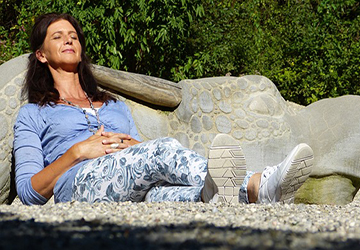Managing stress has become more critical than ever in today's fast-paced world. The challenges we face in our daily lives can often be overwhelming and trigger strong emotions, which can lead to adverse effects of stress on the body and mind. With the advent of COVID-19, public health actions, especially physical distancing, can make us feel isolated and lonely, adding to our stress levels.
The first step in coping with stress is to accept that it is a part of life, and we must learn how to relax our minds and body from stress effectively. After a traumatic event, most people show signs of lingering reactions and intense grief, which can be challenging to cope with.

Therefore, this article will provide tips to help you reduce stress and related symptoms, allowing you to maintain your overall health.
How to Relax Your Mind and Body from Stress?
We need proper guidance and planning to counter the adverse effects of stress on the body and mind. There are many ways to relieve yourself from stress, including managing stress through exercise, meditation, adopting a healthy eating pattern, etc. Let's discuss the most critical methods in detail.
1. Exercise Regularly
If you are wondering how to relax your mind and body from stress, the first answer is exercise. Working out regularly is one of the most effective ways to manage stress. Not only does it help to relax your body and mind, but it can also improve your mood and overall well-being.
Two and a half hours of moderate exercise per week is recommended, and this could include activities such as brisk walks or cycling. Alternatively, if you prefer more vigorous exercise, you could aim for 75 minutes of activities such as swimming laps, jogging, or playing sports.
Setting achievable fitness goals is essential to ensure you follow your exercise routine and don't give up. Remember, even doing a small amount of exercise is better than none. So, why start with a 10-minute walk each day and gradually build up from there?
2. Guided Meditation
Guided meditation has increasingly become a popular solution for coping with everyday stress. With so many online resources, practicing this form of meditation has always been challenging. So, how to manage stress with mindfulness and meditation?
Guided meditation offers a structured approach to achieving a state of relaxation by focusing on specific imagery, sounds, or sensations. It is an ideal way to distress as it takes only a few minutes and can be done conveniently at home.
3. Practice Deep Breathing
Deep breathing is another excellent relaxation technique that can help you reduce stress and anxiety levels. A few deep breaths can help activate your parasympathetic nervous system, responsible for the body's rest and digestion response. This, in turn, will help lower the activation of the sympathetic nervous system, which is responsible for triggering the fight or flight response. But how to manage stress with mindfulness and meditation?
Find a quiet and comfortable place where you won't be disturbed, and practice deep breathing. Sit or lie down in a position that you find relaxing and start deep breathing. Start by taking a deep breath through your nose for a count of five seconds. Hold your breath for two seconds, and then exhale through your mouth slowly for five seconds. Repeat this process a few more times until you feel calm and composed.
Deep breathing is a simple yet powerful tool that you can use to manage stress and reduce anxiety. Incorporate this technique into your daily routine and experience a sense of calm that will positively impact all aspects of your life.

4. Maintain a Healthy Diet
Maintaining a well-balanced diet should be a top priority for everyone looking to improve their health. It is a fundamental pillar of a healthy lifestyle that can make you feel better physically, emotionally, and mentally. A well-balanced diet ensures that you fuel your body with essential vitamins, minerals, macronutrients, and all the other necessary nutrients for proper functioning.
But what exactly does a well-balanced diet consist of? Your meals should contain nutrient-dense foods like lean protein, vegetables, fruits, and whole grains. These foods can provide the energy and fuel you need to get through the day while supporting your immune system and overall health. Incorporate a well-balanced diet into your daily routine; it profoundly affects your physical and mental health.
It is crucial not to skip meals when following a well-balanced diet. Doing so can deprive your body of the nutrients it needs, harming your mood and increasing stress levels.
So, consciously try to choose healthier options and avoid foods that can harm your well-being.
5. Manage Social Media Time
Too much and unfiltered exposure to social media sites can become more stressful than we think. Not only do we encounter things that might upset us, but we might also miss out on other meaningful activities like having a great time with friends, basking in the sun, or reading a good book. Moreover, using social media late at night can negatively impact our sleep.
Studies have shown that using too much social media at night increases stress levels, making it harder for us to relax and get quality sleep, affecting our overall health and mood. It is crucial to be aware of the potential risks and strive for a healthy balance between virtual and real-life activities.
The Bottom Line
Stress is a common problem everyone faces in life, and it can lead to anxiety, frustration, and helplessness, which can be incredibly overwhelming. Public health measures can heighten stress and isolation, particularly among those struggling with mental health issues.
Given the potential impact of stress on our well-being, it's important to learn healthy coping mechanisms like managing stress through exercise, having a balanced diet, access the proper care and support at the right time. This can help reduce the negative symptoms associated with anxiety and promote overall mental health and resilience, enhancing the quality of your life.




